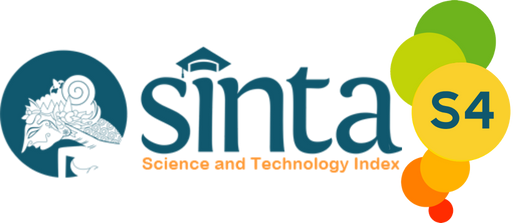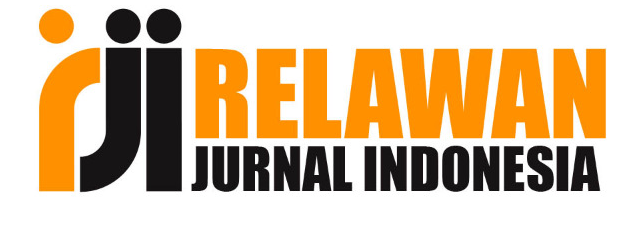Penerapan SAK ETAP sebagai Strategi Peningkatan Transparansi Laporan Keuangan
The Implementation of SAK ETAP as a Strategy to Enhance Financial Report Transparency
DOI:
https://doi.org/10.32939/dhb.v6i2.5834Keywords:
SAK ETAP, Financial Statements, Decision Usefulness TheoryAbstract
Purpose: This study aims to analyze the level of compliance in financial statement preparation, identify obstacles in the implementation of SAK ETAP, and conduct an evaluation to assess the quality of financial reporting.
Design/Methodology/Approach: A qualitative method with a descriptive approach was employed. Data were collected through interviews, documentation, and literature review. Primary data were obtained directly from informants, while secondary data came from relevant literature and the financial statements of PT. Restu Ibu Rama. The research focuses on evaluating the company’s compliance with SAK ETAP standards.
Findings: The implementation of SAK ETAP in the preparation of PT. Restu Ibu Rama’s financial statements has not been fully optimized, as several components and accounts are not properly presented. The main challenges identified include limited understanding of SAK ETAP by the finance team, insufficient human resources, weaknesses in the accounting information system, and inadequate internal control.
Research Implications: Strengthening the knowledge and capacity of financial staff, improving the accounting information system, and enhancing internal supervision are necessary steps to ensure that financial statements are more accurate, reliable, and useful as a basis for decision-making.
Keywords: SAK ETAP; Financial Statements; Decision Usefulness Theory
Downloads
References
Ade Astalia Pratiwi, Jullie J Sondakh, & Lintje Kalangi. (2014). ANALISIS PENERAPAN SAK ETAP PADA Penyajian Laporan Keuangan PT. Ninchindo Manado Suisan. Jurnal EMBA : Jurnal Riset Ekonomi, Manajemen, Bisnis Dan Akuntansi, 2(3), 236–360.
Ala, H. M., & Efendi, B. S. (2019). Penerapan Pencatatan Keuangan Berbasis SAK ETAP dengan Pendekatan Analisis SWOT pada UMKM di Kota Kupang. Jurnal Inovasi Kebijakan, 4(1), 53–65. https://doi.org/10.37182/jik.v4i1.31
Anggraini, R. I., & Sumanto, A. (2023). Analisis Faktor-Faktor yang Mempengaruhi Pemahaman Pelaku UMKM dalam Penyusunan Laporan Keuangan Menurut Standar Akuntansi Keuangan Entitas Mikro Kecil dan Menengah (SAK EMKM) (Pada UMKM di Kecamatan Dukuh Pakis Kota Surabaya). SUSTAINABLE, 3(2), 216–233. https://doi.org/10.30651/stb.v3i2.20655
Arifiyanto, R. T., Apriyanto, G., & Sumtaky, M. (2021). Penerapan Akuntasi Berdasarkan SAK ETAP pada DIY (Do It Yourself) UMKM di Kabupaten Lumajang. Jurnal Akuntansi Dan Perpajakan, 7(2), 117–125. https://doi.org/10.26905/ap.v7i2.6286
Desiana., Salsabila. R., Sarmigi. E. (2025). Unlocking Real Sector Growth through Sukuk: Regulatory Challenges and Developmental Impacts in Indonesia. Al-Iqtishad: Jurnal Ilmu Ekonomi Syariah, 17(1). https://doi.org/10.15408/aiq.v17i1.44906
Fatikha, K., & Husna, G. A. (2022). Analisis penerapan SAK-ETAP pada perusahaan PT Lintas Samudra Jaya. Fair Value: Jurnal Ilmiah Akuntansi Dan Keuangan, 4(12), 5905–5910. https://doi.org/10.32670/fairvalue.v4i12.2218
Hetika, H., & Mahmudah, N. (2017). Penerapan Akuntansi dan Kesesuaiannya dengan SAK ETAP pada UMKM Kota Tegal. JURNAL AKUNTANSI, EKONOMI Dan MANAJEMEN BISNIS, 5(2), 259. https://doi.org/10.30871/jaemb.v5i2.531
Ikatan Akuntansi Indonesia. (2009, May 19). Standar Akuntansi Keuangan Entitas Tanpa Akuntabilitas Publik (SAK ETAP). https://web.iaiglobal.or.id/SAK-IAI/Produk%20SAK%20ETAP%20Disahkan#gsc.tab=0
Indana Fajrinshanty, Nyoman Trisna Herawati, & Dr. Anantawikrama Tungga Atmadja. (2017). Penerapan Standar Akuntansi Keuangan Entitas Tanpa Akuntabilitas (SAK ETAP) Pada UD Sinar Abadi. JIMAT (Jurnal Ilmiah Mahasiswa Akuntansi) UNDISKHA, 8(2).
John W. Creswell, & Cheryl N.Poth. (2018). Qualitative Inquiry and Research design; Choosing among Five Approaches (4th ed.). SAGE Publications.
Lexy J. Moleong. (2019). Metode Penelitian Kualitatif (Edisi Revisi). PT. Remaja Rodsakarya.
Maryanto, M. (2019). Analisis Penerapan Akuntansi dan Kesesuainnya dengan Entitas Tanpa Akuntabilitas Publik (SAK ETAP) pada Usaha MIikro Kecil dan Menengah (UMKM). JURNAL EKONOMI SAKTI (JES), 8(1), 50. https://doi.org/10.36272/jes.v8i1.189
Oktavia, D. P., & Sunrowiyati, siti. (2019). Penerapan SAK ETAP pada Laporan Keuangan UD. KARYA TUNGGAL. Jurnal PETA, 4, 16–32. https://journal.stieken.ac.id/index.php/peta/article/view/364
Puspitaningtyas, Z. (2010). Decision Usefulness Approach Of Accounting Information: Bagaimana Informasi Akuntansi Menjadi Useful ? AKRUAL: Jurnal Akuntansi, 2(1), 92. https://doi.org/10.26740/jaj.v2n1.p92-108
Saputra, M. D., Sondakh, J. J., & Runtu, T. (2017). Analisis Penyajian Laporan Keuangan berdasarkan Penerapan Standar Akuntansi Keuangan Entitas tanpa Akuntabilitas Publik Pada PT. FORTUNA INTI ALAM. Jurnal Riset Akuntansi Going Concern, 12.
Sarmigi, E., Rahayu, S., & Arum, E. D. P. (2025). Against Fraud: How Religious-Based Values Accounting Work. TSAQAFAH, 21(1), 139-158.
Sarmigi, E., Rahayu, S., & Arum, E. D. P., Wijaya, R. (2025). Causes And Prevention Of Fraud In Management Of Village Funds: Literature Review. Procedia Environmental Science, Engineering and Management, 12(2), 301-312.
Suhendar, E., Rusmana, O., & Putri, N. K. (2023). Analisis Persepsi dan Pengetahuan Akuntansi Pengguna SAK ETAP terhadap SAK Entitas Privat (EP) pada Penyusunan Laporan Keuangan (Studi Empiris pada Koperasi di Kota Banjar, Jawa Barat). Jurnal Ilmiah Mahasiswa Ekonomi Akuntansi, 8(3), 330–338. https://doi.org/10.24815/jimeka.v8i3.26569
Trimulato, T., & Syarifuddin, S. (2023). The Role State Sukuk Instruments to Support Halal Industry. Benefit: Journal of Bussiness, Economics, and Finance, 1(1), 1–13. https://doi.org/10.37985/benefit.v1i1.14
Violetfin, F. (2015). Penerapan Standar Akuntansi Keuangan Entitas tanpa Akuntabilitas Publik (SAK ETAP) (Studi Kasus Pada CV. Citra Pandion Bernas di Kabupaten Solok). Economica, 1(2), 223–230. https://doi.org/10.22202/economica.2013.v1.i2.123
Ziwei Yi, Xinwei Cao, Zuyan Chen, & Shual Li. (2023). Artificial Intelligence in Accounting and Finance: Challenges and Opportunitie. IEEE, 11, 12900–12923.
Downloads
Published
How to Cite
Issue
Section
License
Copyright (c) 2025 Reisy Hariza, Rahmadi Rahmadi, Tora Fahrudin

This work is licensed under a Creative Commons Attribution 4.0 International License.













